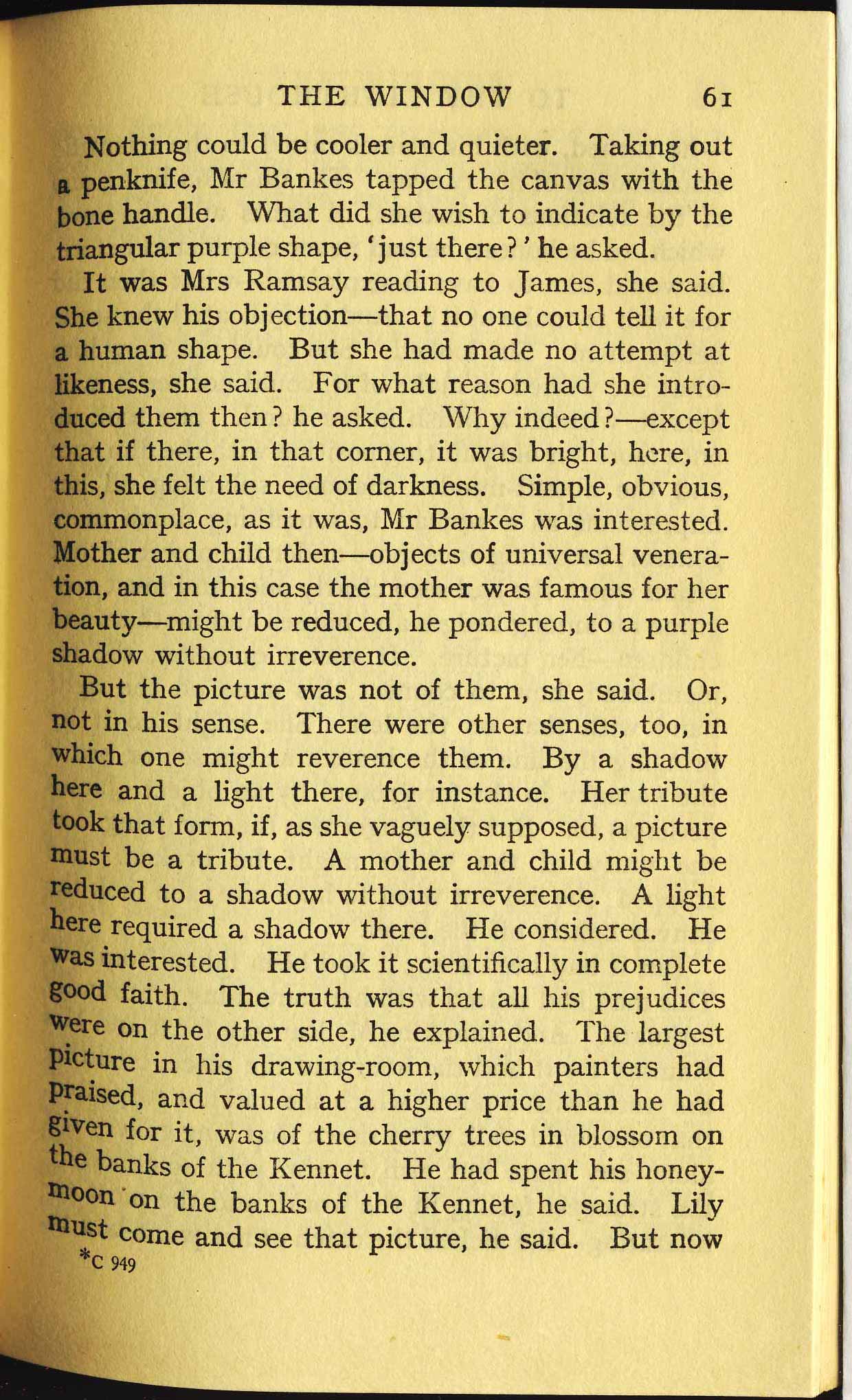
THE WINDOW 61Nothing could be cooler and quieter. Taking outa penknife, Mr Bankes tapped the canvas with thebone handle. What did she wish to indicate by thetriangular purple shape, ŌĆśjust there?ŌĆÖ he asked.It was Mrs Ramsay reading to James, she said.She knew his objectionŌĆöthat no one could tell it fora human shape. But she had made no attempt atlikeness, she said. For what reason had she intro-duced them then? he asked. Why indeed?ŌĆöexceptthat if there, in that corner, it was bright, here, inthis, she felt the need of darkness. Simple, obvious,commonplace, as it was, Mr Bankes was interested.Mother and child thenŌĆöobjects of universal venera-tion, and in this case the mother was famous for herbeautyŌĆömight be reduced, he pondered, to a purpleshadow without irreverence.
But the picture was not of them, she said. Or,not in his sense. There were other senses, too, in
which one might reverence them. By a shadowhere and a light there, for instance. Her tributetook that form, if, as she vaguely supposed, a picturemust be a tribute. A mother and child might bereduced to a shadow without irreverence. A lighthere required a shadow there. He considered. Hewas interested. He took it scientifically in complete good faith. The truth was that all his prejudiceswere on the other side, he explained. The largestpicture in his drawing-room, which painters hadpraised, and valued at a higher price than he hadgiven for it, was of the cherry trees in blossom onthe banks of the Kennet. He had spent his honey-moon on the banks of the Kennet, he said. Lilymust come and see that picture, he said. But now
*C 949








